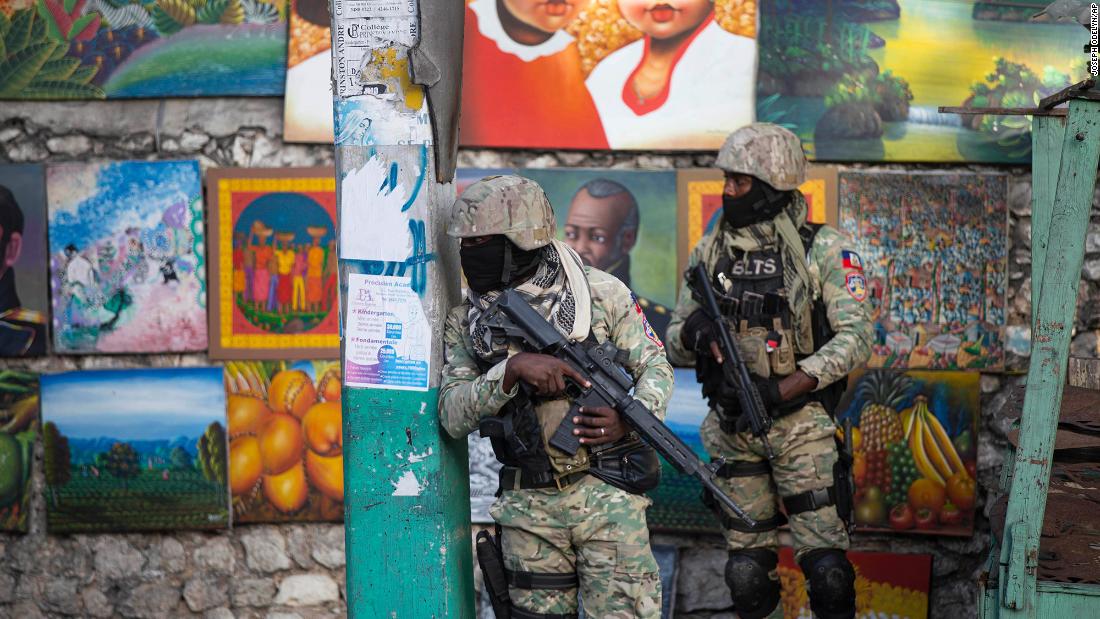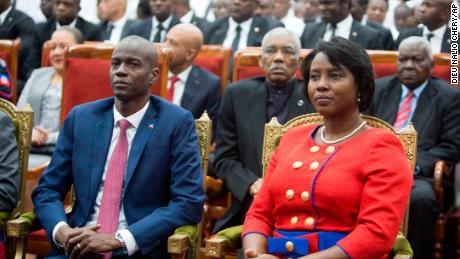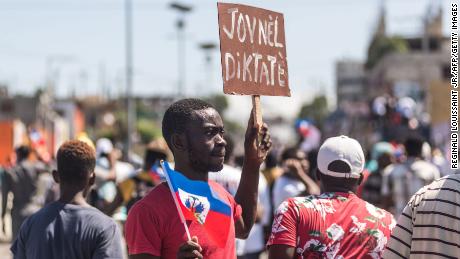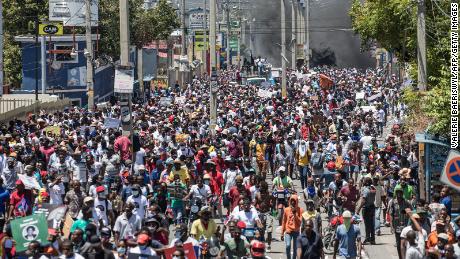Haiti’s leader has been killed. Here’s what you need to know
Haiti’s acting Prime Minister Claude Joseph has assumed leadership of the country in the immediate aftermath of the attack. He has declared a “state of siege” in Haiti, saying he did not want the nation to “plunge into chaos.”
According to Joseph, “a group of unidentified individuals, some of whom were speaking in Spanish” attacked Moise’s home at around 1 a.m. Wednesday and fatally wounded the head of state.
Haitian first lady Martine Moise was also shot in the attack and is receiving “the necessary treatment” for her injuries, Joseph said in a statement.
Moise, who was 53 and a former banana exporter, had spent most of the past year waging a political war with the opposition over the terms of his presidency.
What’s the broader situation in Haiti?
Moise’s death comes against a backdrop of political instability, with many key roles in the country’s government already empty and the parliament effectively defunct. Haiti’s opposition movement has long called for Moise to resign.
Battles between rival groups and the police for control of the port city’s streets have also worsened the country’s humanitarian crisis, threatening bottlenecks on food and fuel supplies.
Meanwhile, Covid-19 is spiking in Haiti. Pan American Health Organization Director Dr. Carissa Etienne last month called on the international community to “urgently” assist the country in combating the virus.
Why was Moise controversial?
Many in Haiti disputed Moise’s right to continue serving in the presidency this year.
He said his five-year term should end in 2022 — a stance backed by the United States, United Nations and Organization of American States.
But the opposition — which accused Moise of allowing corruption and insecurity to flourish in the country — argued that he should have stepped down on February 7 this year, citing a constitutional provision that starts the clock on the term once a president is elected, rather than when he takes office.
Throughout his term in office, the President repeatedly failed to hold elections at local and national levels, leaving much of the country’s governing infrastructure empty.
Who takes over from him?
It isn’t immediately clear who will replace Moise in the coming months.
Judge Jean Wilner Morin, president of the National Association of Haitian Judges, told CNN that the line of presidential succession in the country was murky given its political instability.
For the acting Prime Minister Joseph to formally replace the President, he would have to be approved by Haiti’s parliament, said Morin. But the parliament is currently partially empty and effectively defunct.
Muddying the waters further, Moise had on July 5 appointed another Prime Minister, Dr. Ariel Henry. “So we are in a situation today where we have two Prime Ministers. One Prime Minister who is in office, and another one legally appointed by the President of the Republic. So which of these two Prime Ministers should take the reins of the country?” the judge said.
There is another possible succession scenario, too, said Morin. “The precedent is that in 2015, it was the President of the National Assembly who replaced the President of the Republic. Today we don’t have a President of the National Assembly, but there is still a third of the Senate in Parliament and the third of the Senate is presided over by a former senator, named Joseph Lambert.”
In a statement issued Wednesday, the acting Prime Minister Claude Joseph appealed for calm. “The security situation in the country is under the control of the Haitian National Police and the Haitian Armed Forces,” he said.
He also called on the international community “to launch an investigation into the assassination and for the United Nations to hold a Security Council meeting on Haiti as soon as possible.”
What’s the humanitarian situation in Haiti?
Haiti was already facing a dire economic situation before the Covid-19 pandemic hit. Its economy shrank a further 3.8% in 2020, with about 60% of the population now living in poverty, according to the World Bank.
The recent spike in violence in the capital has only added to the troubles faced by many of its citizens, and complicated the work of aid groups such as Doctors without Borders and UNICEF, the UN children’s agency, in reaching vulnerable people.
Bruno Maes, a UNICEF representative based in Port-au-Prince, told CNN last week that it is increasingly urgent that humanitarian workers be able to travel securely in the country as the peak of the Caribbean’s hurricane season approaches.
More than 86,000 Haitian children under five could be affected, compared with 41,000 last year, the agency said.
UNICEF also said acute malnutrition, which is somewhat less dangerous than severe acute malnutrition, had increased 61% over the last year.
How will the United States respond?
White House Press Secretary Jen Psaki has called Moise’s assassination a “horrific crime” and pledged that Joe Biden’s administration would stand with the people of Haiti.
“It’s a horrific crime, and we’re so sorry for the loss that they are all suffering and going through as many of them are waking up this morning and hearing this news. And we stand ready and stand by them to provide any assistance that’s needed,” Psaki said on CNN’s “New Day.”
“We’re still gathering details, we’re still gathering specifics. And of course, our embassy and State Department will be in close touch,” she said.
The growing instability in the country could complicate upcoming decisions on future deportations of Haitians from the US.
Martin Goillandeau contributed to this report.
![]()










